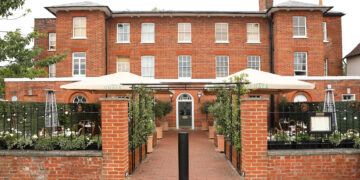CAMPAIGNERS re-imagined their latest protest to save the Reading Gaol from development by holding a virtual march.
Originally, supporting residents planned to march through Reading on Saturday, March 21, in full Victorian costume, with signs and banners objecting to the plan to turn the Gaol into flats.
It was scheduled to begin outside The Hexagon and progress through the town centre, finishing at the Gaol.
Even though the physical event was cancelled, a virtual march took place instead.
Last Saturday, supporters posted songs, dances, paintings, giant puppets, banners and poetry online, uniting through the hashtag #savereadinggaol.
Then, the photos and videos were retweeted by the Save Reading Gaol Twitter account, and shared to the group’s Facebook page.

Matt Rodda, the MP for Reading East — which includes parts of Woodley and Earley — has been running a petition in support of plans to turn the former Reading Gaol site into the centre.
He said: “I want to thank everybody for their amazing support for the virtual march to save Reading Gaol.
“Despite the coronavirus crisis, local people are showing their support to save Reading Gaol, and to keep it as an arts and heritage hub, open to the community. Thank-you again for your support.”
Earlier this month, actor Stephen Fry and novelist Julian Barnes became the latest supporters of the campaign.
Fry played Oscar Wilde in a 1997 film about the gaol’s most famous prisoner.
The playwright and poet was incarcerated in the prison for two years, and published his Ballad of Reading Gaol after his release.
He said: “Flowers can grow out of manure, and if living art can rise up from the place where Oscar and so many others suffered then how perfect that will be, for Reading, for Britain and for us all”.
Julian Barnes said: “Turning a prison into an arts centre is the equivalent of beating swords into ploughshares. I fully support this ambitious and enterprising project.”
A spokesperson from the Save Reading Gaol campaign, said: “The Ministry of Justice could make their decision at any time, so we need to act quickly to make our voices heard again.
“We don’t want the historical Gaol to become luxury flats, we want it to be a world-class arts and heritage site, open to all, and an asset to the whole community.”














































